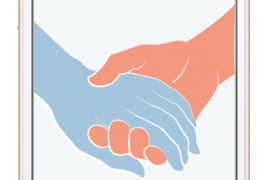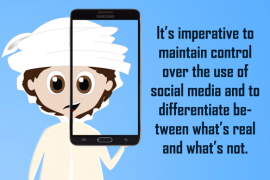
A LinkedIn contact pointed out to me that I had accepted an invitation from someone with a fake LinkedIn profile. I investigated the matter further and found out that, sure enough, that person was pretending to be someone he’s not. So, from now on I have a strict policy of not adding anyone I don’t know, which is the whole point behind LinkedIn but human nature and my curiosity took over, I guess.
I did remove that person from my contacts, but this incident got me thinking about these people and what pushes them to create fake identities. Of course, cyber crime exists and there are a lot of people online who mean harm. However, I never expected that I must take care in selecting the people I connect with on what is, supposedly, a professional network. Therefore, instead of feeling sorry for myself and standing in the victim’s shoes I decided to step up and take in the inquisitive detective’s perspective. From this viewpoint, I considered what it is that makes people put on a mask and pretend to be someone they’re not. I’m sure there are numerous reasons probably far more devious than the ones I’m considering here but here is what I think:
- The ability to harm others without being tracked
- They feel ashamed of who they are
- They feel inferior to others and need to prove themselves
- Financial gain
According to John Thomas, a UAE based social media expert and blogger here are some of the reasons why people create fake profiles:
“There are many reasons on why people create fake profiles or include fake references, and these are just some examples (not in any particular order):
- To disguise true identity (ex: a person well known for leading people into “opportunities” may not wish to reveal his or her real name to prospects)
- To gather e-mail addresses for spam lists
- To present a more enticing image (ex: male marketers may instead present a female profile as his “public image”. In fact, it is learnt that most fake profiles are female)
- To create an artificial image of popularity in hopes of starting a viral trend
- To gather up connections later to be sold for profit (ex: supposedly a person on LinkedIn offered his connections for money)
- To appear more legitimate or more qualified than reality (ex: by claiming alumni at a famous university, or at a Fortune 500 firm, s/he may be able to connect with someone that would not have otherwise accepted the connection
- To denounce / insult / troll / attack a rival company, often pretending to be a whistleblower (i.e. an employee)
- To give the image of a bigger company than it is, by having several “fake staff” at a one-person company join the company
- To impersonate employee of a rival company and issue public insults in their name.
For a more in-depth look at this new trend of fake profiles on social media I suggest that you start by googling it and I recommend you read this informative post.
I don’t usually write about such matters but since the social media world is such a big part of everyone’s life today, I thought it is important to use this space to inform you and warn you about a trend that you may or may not be aware of. There are several ways you can protect your information online. I removed my mobile number and made my profile picture visible only to people in my network. I know it’s not enough but it’s a start. Safe networking everyone!




Cyber crime is rife. Its awful to say but you have to be weary of people!
That was a well written article indeed. Thank you for sharing my blog post on fake profiles. I would also encourage people to visit my post here http://goo.gl/KiYNX which has plenty of visual examples of fake profiles and also a simple technique on how to spot fake profiles on LinkedIn.